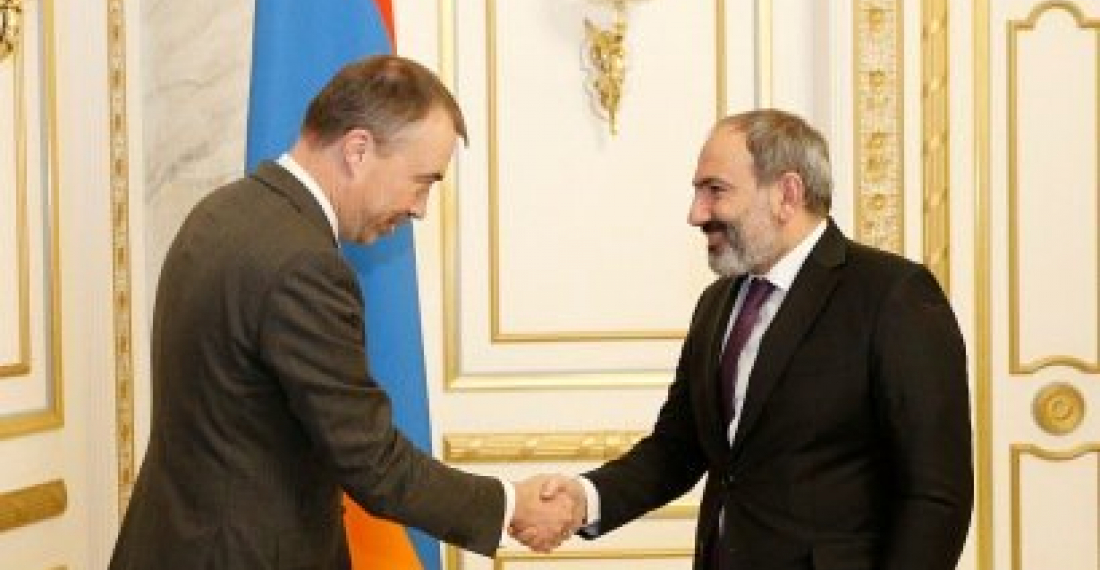The Eurpopean Union Special Representative for the South Caucasus, Toivo Klaar, who is currently on a visit to Armenia, on Monday met prime minister Nikol Pashinyan to discuss the Karabakh issue, EU-Armenia relations and the regional situation.
Earlier, Klaar met separately with foreign minister Zohrab Mnatsakanyan, and defence minister, Davit Tonoyan.
During his meeting with Pashinyan, EUSR Toivo Klaar said the EU is eager to develop and expand relations with Armenia, and expressed confidence that bilateral cooperation will expand as sections of the new comprehensive agreement (CEPA) are implemented pending the ratification of the full agreement by the EU member states.
On Nagorno-Karabakh, sources close to the Armenian prime minister's office told the media that Nikol Pashinyan reaffirmed Armenia's commitment to the peaceful settlement of the conflict in the framework of the OSCE Minsk Group format, adding that Nagorno-Karabakh, particularly its civil society, should be involved in the confidence-building process. Pashinyan said that this would contribute to the formation of a constructive atmosphere in the negotiation process.
source: commonspace.eu with agencies
photo: Armenian prime minister nikol Pashinyan, greeting EU Special Representative Toivo Klaar ahead of their meeting in Yerevan on 11 Februrary 2019. (picture courtesy of the press service of the government of Armenia)







